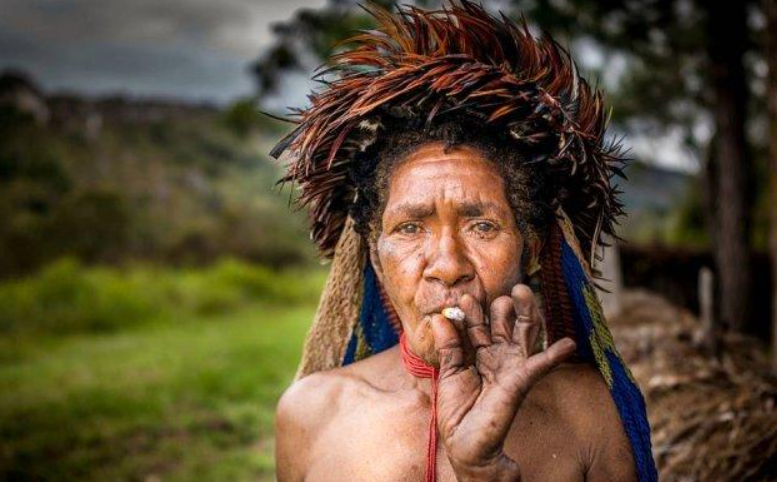PapuaAround.com – Papua, the easternmost province of Indonesia, is renowned for its rich and diverse cultural heritage. One of the most intriguing traditions is “tongue cutting,” commonly known as cipap. This tradition holds significant importance in the lives of certain communities in Papua, particularly among specific tribes. This article aims to delve deeper into the meaning, process, and social implications of the cipap tradition.
Typically, the tongue cutting tradition is performed as a rite of passage into adulthood. The process involves the cutting of a portion of the tongue as a symbol of an individual’s transformation into a higher social status. According to Daniel, a community leader from the Dani tribe, “Cipap signifies that a person has reached adulthood and is ready to take on responsibilities in society.” This ritual not only involves the individual but also the family and the community, which actively participate in the ceremonial proceedings.
The tongue cutting ritual is usually conducted in a solemn and meaningful atmosphere. Before the procedure, the family holds a ceremony that includes prayers and offerings to their ancestors. This is done to seek blessings and protection for the individual undergoing the ritual. “We believe that our ancestors are always present and provide guidance during this process,” Daniel stated. The ceremony is often accompanied by traditional dances and songs, which add to the sacredness of the event.
Once the ceremony concludes, the actual tongue cutting is performed using traditional tools that have been prepared in advance. The cutting is carried out by a community leader or a shaman who possesses the necessary knowledge and skills. “Expertise in performing the tongue cutting is crucial to ensure the process is safe and goes smoothly,” Daniel explained. This procedure requires precision and care, given that the cutting is done manually and traditionally.
Read also: Jayapura in Focus: 4 Intriguing Facts About Papua’s Capital
After the cutting, the individual who has undergone cipap must enter a recovery period. During this time, they are typically prohibited from speaking freely and must adhere to a series of taboos set forth by community leaders. “This is part of the process, where the individual learns about the significance of responsibility and humility,” Daniel added.
The cipap tradition elicits diverse opinions within the community. For many, it is an integral aspect of their cultural identity. However, there are also views suggesting that this practice may carry risks and should be reconsidered. Dr. Maria, an anthropologist at Cenderawasih University, remarked, “Every culture has unique traditions that deserve respect, but it’s also important to consider health and safety aspects of such practices.”
Moreover, the pressures of modernization and globalization pose unique challenges to this tradition. The younger generation in Papua is beginning to adapt to external cultures, which sometimes leads to a shift in traditional values. “We strive to preserve this tradition to prevent it from fading away, but we also need to adapt to the times,” Daniel expressed.
Despite these challenges, some community groups are working to keep cipap alive as part of their identity. They organize cultural festivals and educational initiatives to teach younger generations about the meaning and process behind the tongue cutting tradition. “By providing a good understanding, we hope that the younger generation will appreciate and preserve this cultural heritage,” Daniel stated.
As an essential part of this rich tradition, tongue cutting in Papua reflects the complexity of its society. While there are both supporters and critics of this practice, cipap remains an inseparable aspect of the lives of many people in Papua. In facing the challenges of modernity, it is crucial to maintain an open dialogue about this tradition, ensuring that its noble values can continue to be passed down to future generations.
Thus, the tongue cutting tradition is not merely a ritual but also a means of preserving identity and strengthening community bonds in Papua. It is hoped that awareness of the importance of preserving this tradition will continue to grow, allowing Papua’s cultural diversity to thrive amid changing times.

